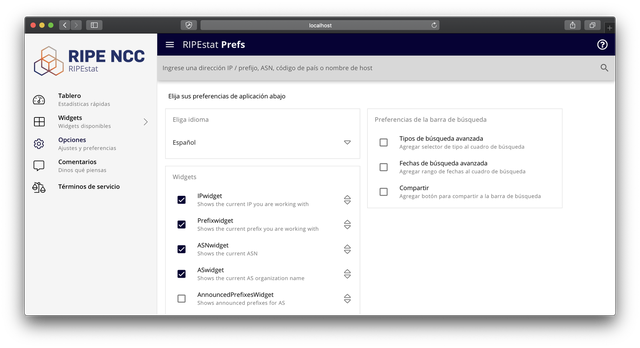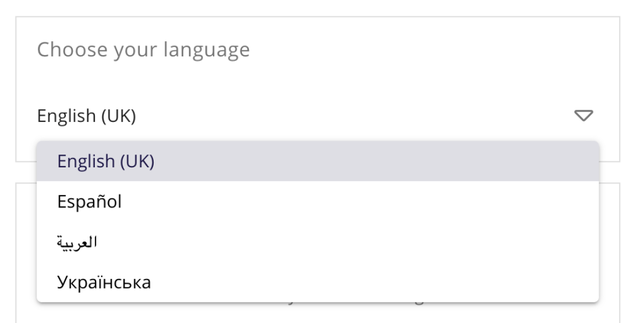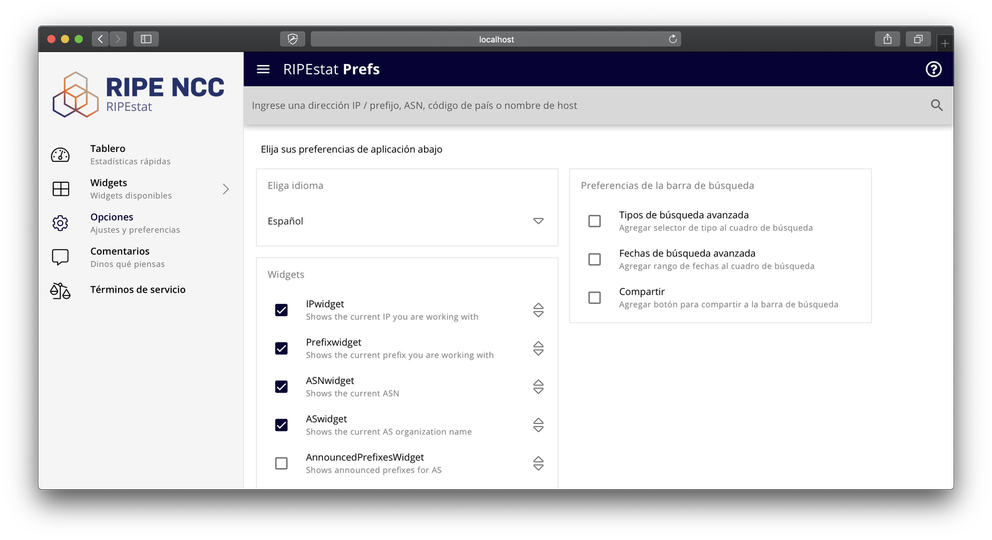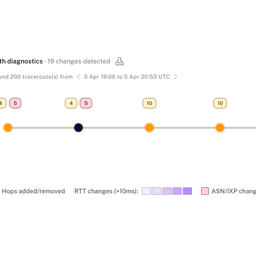In May, with the aim of improving the experience for all RIPEstat users, we started a complete redesign of the RIPEstat user interface. With the prototype UI having received a lot of positive feedback, we’re still busy adding new features, one of which will allow users to switch between languages when using RIPEstat. As this is a first for us, here’s more detail on what we have in mind.
RIPEstat has grown dramatically in recent years. At present, on average, the data API receives around 75 million requests per day while the frontend is visited by well over a thousand unique users per day. As these numbers continue to grow, so too has the geographical diversity of the RIPEstat user base. Ensuring that RIPEstat caters to all its users means ensuring that everyone who lands at the UI can make sense of what’s on offer right from the get go no matter where they’re from or what language they speak.

As of today, we’re taking the first in a number of steps toward providing reliable translations for key elements of text on the RIPEstat prototype UI (RIPEstat beta). This will enable users to toggle between languages quickly and easily so as to get relevant translations for all the important bits of information available on the interface.
Choose Your Language

Eventually, of course, we would like to offer translations for any language requested by our users. To do that, we are already working on putting into place a crowdsourcing feature that will allow our users to add their own translations for text elements in RIPEstat beta. Using an internally hosted version of Weblate (a web-based localisation software), users will have access to an interface that allows them to see a list of all the individual snippets of text displayed in RIPEstat beta and to add their own translations in their preferred languages. The translations added are then checked, and if successful, are used to replace the default on the UI.
Most of the infrastructure behind this is ready to go. One remaining question is just what form these 'checks' will take. We could use a trusted party who speaks the language to check and update translations on a regular basis. Preferably, we could opt to let translations be chosen on the basis of their having been voted on by a sufficient number of users (of course, some moderation will still be in place).
A Note on Translation
This is our first attempt at providing translations for our services. This hasn’t been for lack of interest. In the feedback we receive from member outreach and engagement with the wider Internet community, and in the many responses to the RIPE NCC Survey 2019, there has been a repeated call for this feature, which isn’t surprising for an organisation whose service region covers 76 countries and whose membership hails from 139 countries in total.
As much as we wanted to act on this in the past, there have been reasons to be cautious. Given the technical nature of many our services, there is a real possibility for many of the terms we use to get lost in translation. So, to avoid putting out any misleading information, translations need to be precise. Generally, however, ensuring high quality translation into a broad range of languages is an extremely time-consuming, resource-intensive process.
The approach we're looking to develop overcomes a lot of these concerns in that translations are checked and confirmed by users for users, massively relieving the workload. We can also effectively leave users to decide which languages get translated, allowing them to start work on new languages as they choose.
Other benefits include the fact that, since we only allow translation for a fixed set of key elements, there's no risk of any sensitive documents - e.g. terms and conditions - getting altered in translation. And lastly, since RIPEstat beta is only a prototype, it provides an ideal place to experiment with minimal impact.
Feedback
If you have any comments or questions about any of this, please leave them below. Alternatively, you can find more information on how to reach us with your RIPEstat feedback on our website.





Comments 0
The comments section is closed for articles published more than a year ago. If you'd like to inform us of any issues, please contact us.